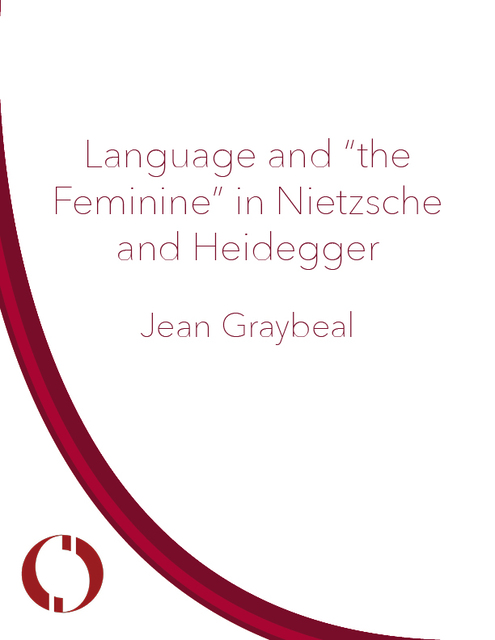Language and "the Feminine" in Nietzsche and Heidegger
Nietzsche and Heidegger were both lovers of language, and author Jean Graybeal argues that their writing styles demonstrate a relationship with the feminine dimension of language. Using as a framework the theories of Julia Kristeva concerning the "symbolic" and "semiotic" dispositions in language, Graybeal reads Nietzsche and Heidegger as writers and thinkers whose experimentation with language is directly relevant both to their quests for nonmetaphysical ways of thinking and to the feminist project of moving beyond male dominance.
The chapters on Nietzsche discuss portions of The Gay Science, Thus Spoke Zarathustra, and Ecce Homo with the question of woman in the forefront of the analysis. The chapters on Heidegger deal, first, with Being and Time, describing the ways in which Heidegger evokes the feminine and semiotic dimensions in language. Finally, eight of Heidegger's later essays are read with attention to feminine, maternal, and erotic imagery.
Uniquely influential in contemporary philosophy, Nietzsche's and Heidegger's attempts to overcome metaphysics may also contribute to the task of moving beyond androcentric thinking. Graybeal' s sensitive critical study enables readers of philosophy, theology, and criticism to imagine how the work of Nietzsche and Heidegger is relevant to our understandings of what it is to be women and men.

Table of Contents
Metadata
- isbn978-0-253-05570-5
- publisherIndiana University Press
- publisher placeBloomington, Indiana USA
- restrictionsCC-BY-NC-ND
- rightsCopyright © Trustees of Indiana University
- rights holderIndiana University Press
- rights territoryWorld
- doi
We use cookies to analyze our traffic. Please decide if you are willing to accept cookies from our website. You can change this setting anytime in Privacy Settings.


